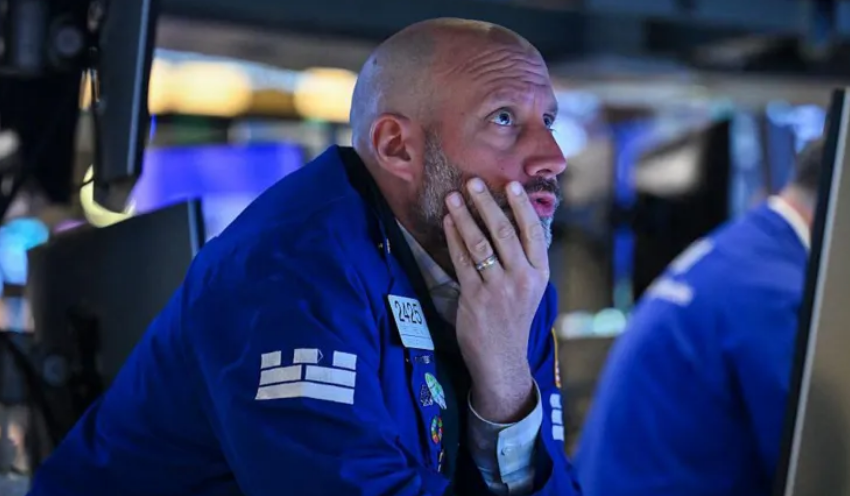U.S. financial markets took another sharp hit as former President Donald Trump escalated his attacks on Federal Reserve Chair Jerome Powell, accusing him of failing to cut interest rates amid mounting economic uncertainty.
In a social media post on Monday, Trump branded Powell “a major loser” and urged the Fed to reduce rates “pre-emptively” to prevent an economic slowdown. “There can be a SLOWING of the economy unless Mr. Too Late, a major loser, lowers interest rates, NOW,” Trump wrote.
His comments followed a week of turbulence driven in part by Trump’s own tariff policies, which have rattled investors and heightened fears of a recession. The renewed public criticism of Powell—whom Trump appointed during his first term—has fueled further volatility in markets already reeling from global economic concerns.
Major U.S. stock indexes slumped on Monday. The S&P 500 dropped 2.4%, while the Dow Jones Industrial Average and Nasdaq each fell more than 2.4%. The losses added to an already difficult year for markets, with the S&P 500 down roughly 12% since January and the Nasdaq off nearly 18%.
Global markets remained mixed on Tuesday. In Asia, Japan’s Nikkei 225 edged down 0.1% and Australia’s ASX 200 slipped 0.3%, while Hong Kong’s Hang Seng gained 0.3%. Early European trading showed the UK’s FTSE 100 dipping slightly, and Germany’s DAX and France’s CAC 40 were both down by around 0.5–0.6%.
The U.S. dollar also came under pressure, with the dollar index dropping to its lowest level since 2022. Yields on 10-year U.S. Treasury bonds remained elevated above 4.4%, a sign of investor unease. In contrast, gold prices surged past $3,500 per ounce for the first time, reflecting growing demand for safe-haven assets amid geopolitical and economic uncertainty.
Susannah Streeter, head of money and markets at Hargreaves Lansdown, pointed to concerns beyond tariffs, including ongoing conflicts in Ukraine and Gaza and emerging geopolitical tensions in the Arctic. “Gold’s appeal has grown as long-term solutions to global instability remain elusive,” she said.
Trump has a history of clashing with Powell over monetary policy and even floated the idea of firing him during his presidency. Though Powell has said he doesn’t believe the president has the legal authority to remove a Fed chair, Trump’s advisors are reportedly examining the possibility.
The controversy comes as global financial leaders convene in Washington for the spring meetings of the International Monetary Fund (IMF) and the World Bank. Economists, including UC Davis professor and former IMF official Christopher Meissner, warned that undermining central bank independence could threaten financial stability and long-term price control.
“Central bank independence has been a cornerstone of economic stability for decades,” said Meissner. “Reversing that trend could have global consequences.”
The IMF is expected to release revised global growth forecasts soon, with early indications suggesting “notable markdowns” in expectations for the U.S. and other major economies.


